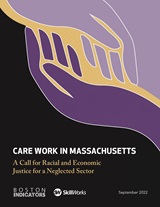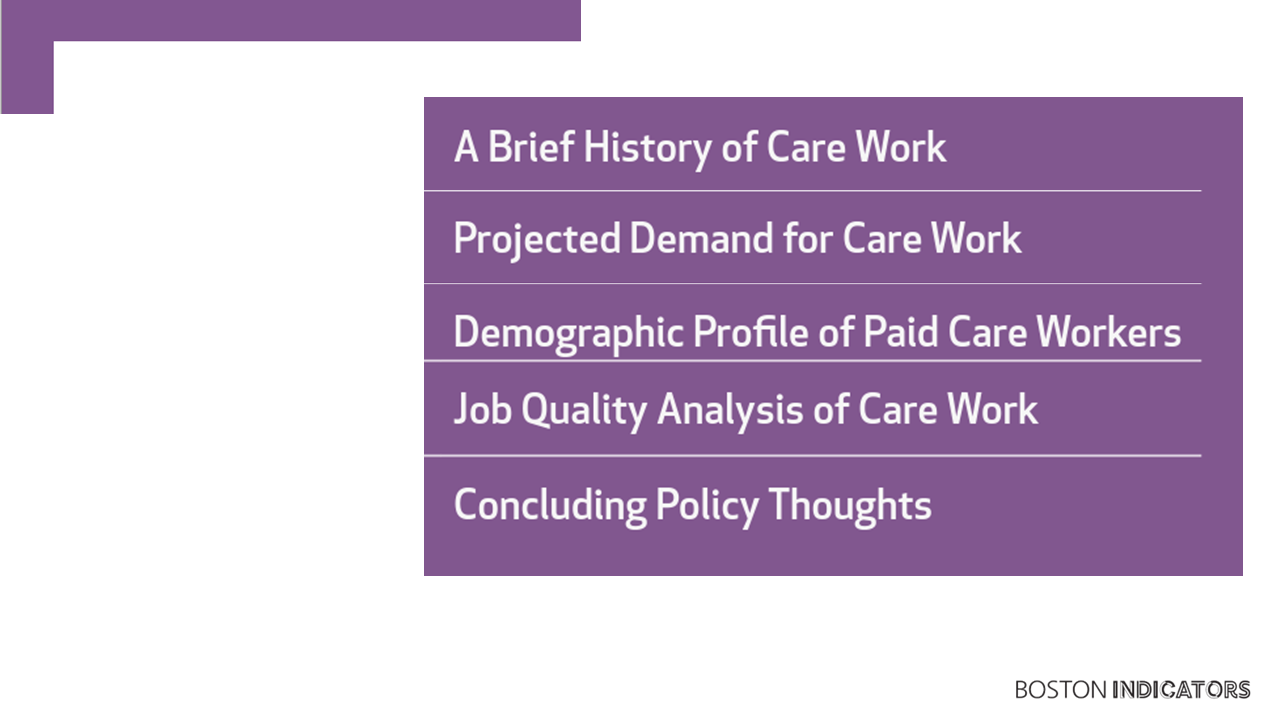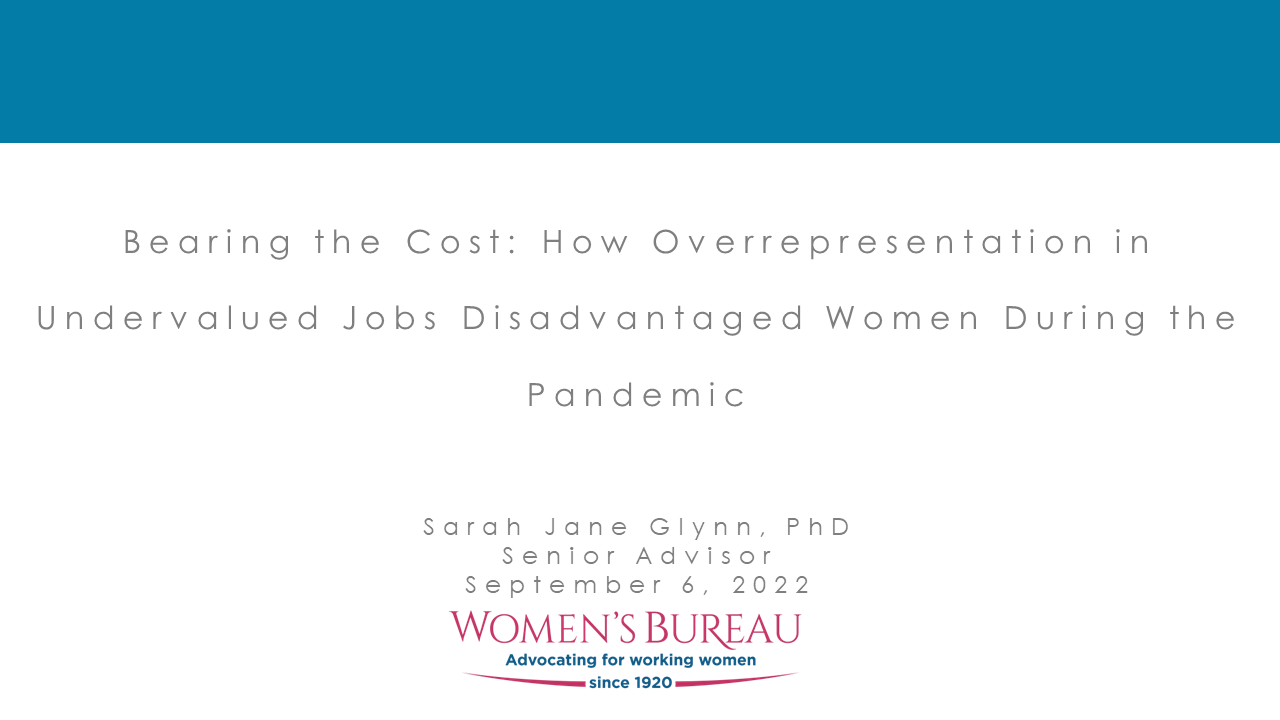Our recent celebration of Labor Day paid tribute to the contributions of American workers. But those who provide support for people in infancy, illness, disability or old age are too often excluded from our conception of high-value labor.
The crucial role played by the care workers was made clear during the virtual forum which followed the release last week of a report titled Care Work in Massachusetts: A Call for Racial and Economic Justice for a Neglected Sector. The forum and report were a joint effort of Boston Indicators, the Boston Foundation, and TBF’s workforce initiative SkillWorks.
The report explores the disconnect between the growing need for home care and long-term workers in Massachusetts as the Baby Boomer generation ages and the difficult working conditions and low pay these same workers face.
It paints a stark picture of a workforce that is predominantly female, women of color and immigrants. Women comprise 85 percent of the Massachusetts home care and long-term care workforce and 92 percent of child-care workers, while Black and Latinx workers make up more than half of the state’s home care and long-term care workforce—almost half of them foreign-born. These figures were surprising even to experts in the field, said Anne Calef, Research Manager for Boston Indicators, who presented the report.
Wages have lagged woefully behind in the care sector—at half the median wage—and job quality is poor while the rates of illness and injury are high.
“Care is the infrastructure the rest of our economy is built on,” said Jane Glynn, Senior Advisor of the Women’s Bureau of the U.S. Department of Labor, who provided a national context to the discussion. She used the term “occupation segregation” to describe the devaluation of care jobs because they are so dominated by women and especially women of color.
Glynn added that nearly two million women lost their jobs during the pandemic, twice as many as men—with mothers, unpartnered mothers and mothers of color hit the hardest.
The first speaker of the panel discussion that followed, which was moderated by SkillWorks’ Director Andre Green, was Gwendolyn Brown, a Professional Caregiver herself and an active member of 1199SEIU United Healthcare Workers of East Massachusetts.
“I have been a Personal Care Attendant (PCA) for 20 years,” said Brown, “and I’ve faced the tough choices so many of us have to face.” She described having to choose between staying at home to care for her sick husband and working outside the home. She chose to stay at home, but subsequently has had to work two low-paying jobs to make up for lost wages to support her family, including a daughter in college.




